Create an environment to retain talent
The Prime Minister has issued Decision No. 1002/QD-TTg approving the Project on training human resources for high-tech development in the 2025-2035 period, with a vision to 2045. To implement this Project, the Ministry of Education and Training requires higher education institutions to review and innovate training programs in science, technology, engineering and mathematics (STEM).
The Ministry also encourages schools to apply a convergent education model, focusing on developing practical capacity and interdisciplinary approach, especially for postgraduate training programs in the fields of digital technology, artificial intelligence (AI) and biotechnology.
In addition, the Ministry of Education and Training recommends that training institutions prioritize investment and upgrading of laboratory systems, technology and learning materials to serve teaching and research in the high-tech field. At the same time, schools need to develop and implement policies to attract and maintain a stable team of good lecturers, and apply long-term support policies on working, living and research conditions - especially for young lecturers with development potential.
According to Prof. Dr. Chu Duc Trinh - Rector of the University of Technology (Vietnam National University, Hanoi), the starting point of a sustainable science system lies not only in modern laboratories or strong investment policies, but also in a transparent, open and fair academic environment - where people are the center of development.
He emphasized that the most important factor in building a long-term research workforce is to create a civilized, transparent, competitive and creative working environment. This is an environment where scientists can wholeheartedly devote themselves to the school and science, without being influenced by administrative factors or negative competition.
Prof. Dr. Chu Duc Trinh said that at the University of Technology, transparency is not only reflected in the regulations and operating procedures, but is also concretized in the way of recognizing, honoring and using talents. Each lecturer and researcher is given the opportunity to promote their personal strengths, and at the same time participate directly in scientific management activities, and is autonomous in teaching and research - a factor that is still rare in many educational institutions today.
According to Prof. Dr. Chu Duc Trinh, a transparent environment is a necessary but not sufficient condition. To retain talented people, the prerequisite is to ensure a stable and satisfactory material life. Lecturers and scientists can hardly devote themselves to their work if their living conditions are not guaranteed. Therefore, salary policies, scholarships and financial support are key factors in determining whether they stay or leave the working environment.
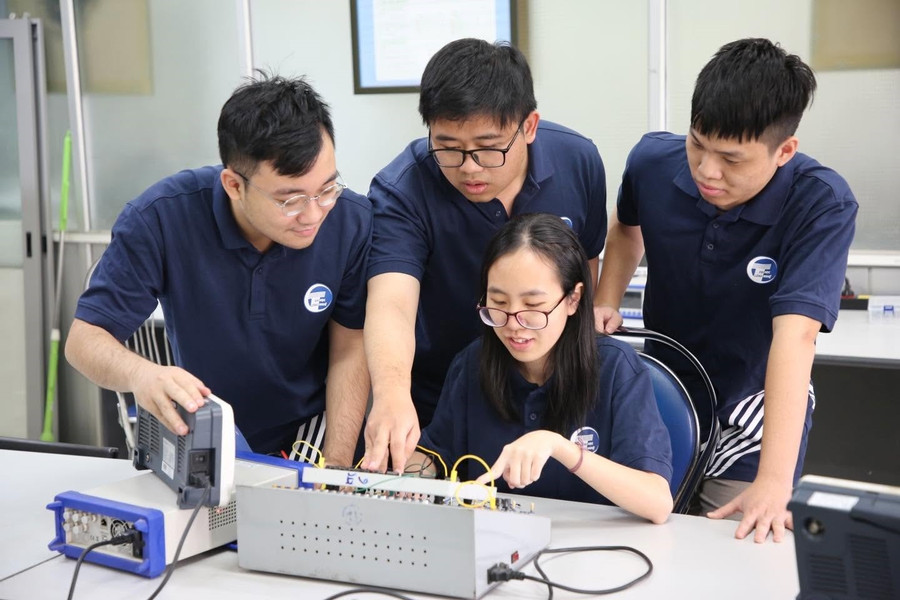
The “key” to attracting and promoting a team of good lecturers
In recent times, the University of Technology has implemented many breakthrough policies in attracting and retaining scientific human resources, including graduate students and postgraduate students - potential lecturers and scientists of the future. Accordingly, the school exempts tuition fees for all graduate students and postgraduate students studying full-time programs, and provides monthly financial support to ensure minimum living conditions in Hanoi.
Not only does the school provide financial support, it also builds a model to engage postgraduate students in research activities, helping them become part of the scientific team. Through direct participation in school, ministry, and state-level projects, postgraduate students and researchers not only accumulate practical experience, but also create scientific products with high application value, contributing to the overall achievements of the school and research groups.
Hanoi University of Science and Technology (USTH) has just launched the Talent Recruitment Program for the period 2025 - 2030 with many attractive incentive policies to attract excellent scientists from home and abroad.
According to Associate Professor Dr. Tran Dinh Phong - Vice Principal, the program aims to select 25 outstanding lecturers and researchers in the period 2025 - 2030, working in the fields of natural sciences and technology, with special priority given to the fields of artificial intelligence, information security, data science, mechatronic engineering, microchip technology - semiconductor, aviation engineering and automotive engineering.
Selection criteria focus on research capacity, proposed research program, international publication record, ability to mobilize funding resources, develop international cooperation and long-term commitment to the university. Candidates who have graduated from the world's leading universities and have experience teaching or supervising PhD students will have an advantage in the selection process.
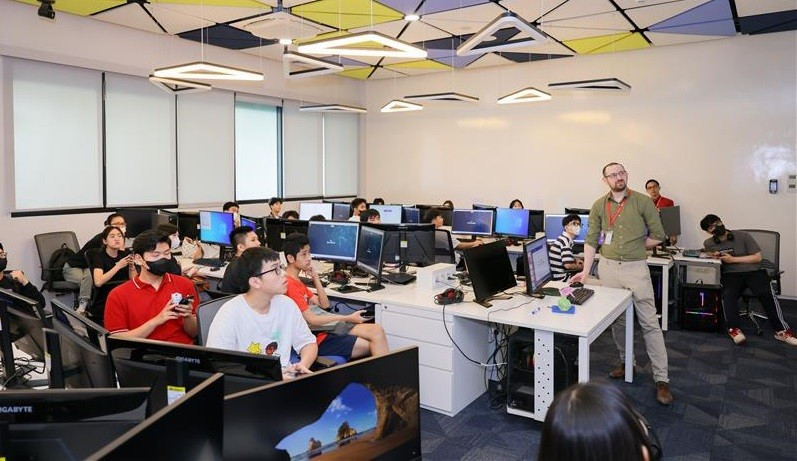
Successful candidates will enjoy competitive remuneration. The University commits to supporting research packages from 1.5 to 3 billion VND in the first three years, sponsoring two full-time doctoral scholarships or cotutelle scholarships with international partners to build research groups. Talented lecturers and researchers also have priority access to funding from the Vietnam Academy of Science and Technology, use existing equipment and laboratories and have the right to propose investment in new equipment for research.
In particular, USTH is affiliated with the Vietnam Academy of Science and Technology, and receives the support of the Alliance of nearly 30 large French universities and research institutions, creating favorable conditions for lecturers to implement high-level research projects, expand domestic and international cooperation networks, contribute to the development of science and technology and train high-quality human resources for the country.
Associate Professor, Dr. Tran Dinh Phong said that in recent years, USTH has achieved many proud results such as meeting HCERES (France) accreditation standards for the period 2023 - 2028, SCIE international publication productivity reaching 1.2 - 1.5 articles/lecturer/year. Currently, 85% of the school's lecturers have a doctorate degree or higher, most of whom graduated from leading universities in France, Germany, Japan, Korea... From now until 2030, the school aims to increase the size of the teaching staff to 200 - 250 people.
According to Associate Professor Dr. Tran Dinh Phong, the Talent Recruitment Program for the period 2025 - 2030 is a "strategic lever" to help USTH attract and create favorable mechanisms for excellent lecturers and researchers to promote their capacity and develop their careers in a professional, humanistic and internationally integrated environment. These talented scientists are expected to become the core to lead research groups, initiate new directions, improve the scientific and technological capacity and position of the school on the map of Vietnamese higher education.
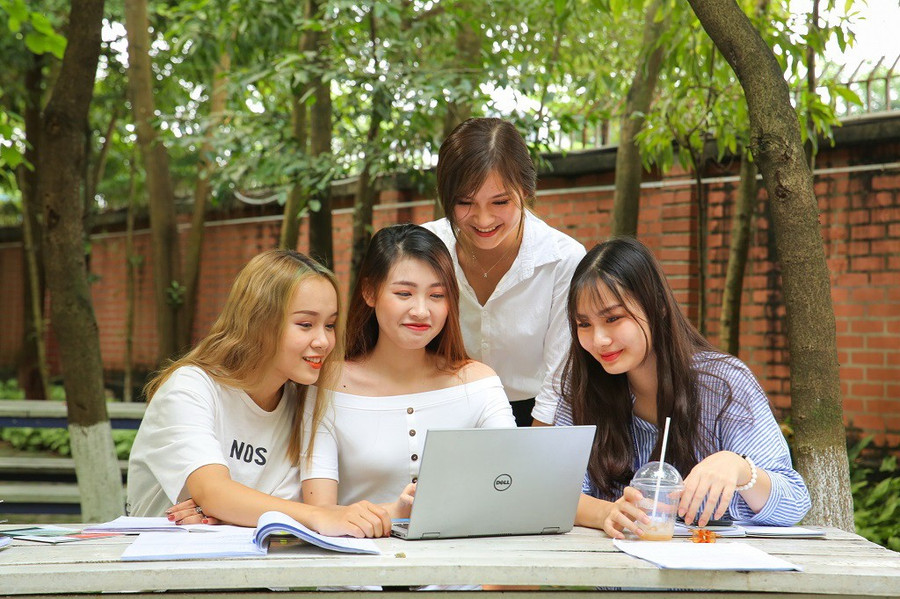
Key factors to improve quality
From another perspective, National Assembly delegate Hoang Van Cuong (Hanoi delegation) emphasized that in order for universities to reach international standards, scientific research tasks must be placed on par with teaching tasks. In the world, most Nobel Prizes come from universities. Meanwhile, in Vietnam, about 90% of international articles are published by university lecturers, but research funding received by universities only accounts for about 7% of the total national science budget.
According to him, the law needs to clearly stipulate the priority of research topics for teachers, and scientific research and technology transfer activities need to enjoy tax incentives. This is the fundamental way to promote science, technology and innovation.
Referring to the remuneration policy for teachers, Mr. Hoang Van Cuong said that this group currently accounts for about 70% of the total number of civil servants nationwide, but is still applying the general salary scale of the civil servant system, which is inappropriate.
He said that it is necessary to build a separate salary scale for teachers, reflecting the specific characteristics of the profession and job position, while ensuring income commensurate with labor costs so that teachers and lecturers can devote themselves to their profession without having to worry about making a living. The delegate also proposed adding teachers to the group of subjects eligible to buy social housing, similar to officers in the army, so that they can work with peace of mind for a long time.
According to statistics from the Ministry of Education and Training, the country currently has nearly 86,000 full-time university lecturers, of which more than 70,000 work at public institutions. This team includes nearly 750 professors, more than 5,900 associate professors, 30,000 PhDs and nearly 50,000 masters. In recent years, the number of lecturers has increased rapidly, the quality has gradually improved, and has partly integrated with international standards.
However, according to Mr. Vu Minh Duc - Director of the Department of Teachers and Educational Managers (Ministry of Education and Training), compared to the requirements of innovation in higher education and the trend of globalization, this situation still has many limitations. The teaching staff has not really met the requirements of simultaneous development in both aspects: Teaching and scientific research. Besides, the current remuneration regime is not attractive enough to retain talented people or attract prestigious scientists at home and abroad.
Mr. Duc said that the State has issued many important policies to develop the teaching staff such as standardizing qualifications, regulating working regimes, expanding doctoral training, encouraging scientific research, improving salaries - income and working environment. However, the actual implementation still has many shortcomings. The initial scientific research policy has affirmed this as a mandatory task, at the same time opening up funds and funding programs from the grassroots to the national level.
Some schools now have mechanisms to reward lecturers with international publications and support their participation in conferences, but the biggest difficulties are still the lack of financial resources, limited funding and complicated administrative procedures. Working conditions have improved as many schools invest in laboratories, research rooms and support public housing - especially for young lecturers. However, the promotion and appointment mechanism is still cumbersome, inflexible and not linked to quality, causing a decline in career motivation.
A number of schools and localities have implemented policies to attract talent, such as: initial subsidies, housing support, creating favorable conditions for research or special recruitment for leading scientists and people with high academic degrees. However, these policies are not competitive enough internationally, making it difficult for Vietnam to attract and retain good experts.
Mr. Vu Minh Duc emphasized that in order to meet the development requirements in the context of integration and digital transformation, policies for university lecturers need to continue to be strongly innovated. First of all, it is necessary to overcome shortcomings in working regime, salary, and benefits, while creating favorable conditions for lecturers to develop their careers.
At the same time, it is necessary to invest heavily in postgraduate training, expand research opportunities, build a fund for substantial science and technology development, and reduce administrative procedures. On the other hand, policies to attract talent must be flexible, competitive, and commensurate with capacity and contribution, so that Vietnam can truly retain and promote a team of high-quality university lecturers.
According to Mr. Vu Minh Duc, retaining and attracting talent is the key factor determining the quality of Vietnam's higher education. Only when lecturers are treated fairly and have a favorable working environment, will they truly devote themselves to teaching and research, thereby contributing to improving the quality and status of our country's higher education.
Source: https://giaoducthoidai.vn/dong-bo-cac-chinh-sach-phat-trien-nhan-luc-cong-nghe-cao-post753182.html





![[Photo] National Assembly Chairman Tran Thanh Man attends the VinFuture 2025 Award Ceremony](/_next/image?url=https%3A%2F%2Fvphoto.vietnam.vn%2Fthumb%2F1200x675%2Fvietnam%2Fresource%2FIMAGE%2F2025%2F12%2F05%2F1764951162416_2628509768338816493-6995-jpg.webp&w=3840&q=75)
![[Photo] 60th Anniversary of the Founding of the Vietnam Association of Photographic Artists](/_next/image?url=https%3A%2F%2Fvphoto.vietnam.vn%2Fthumb%2F1200x675%2Fvietnam%2Fresource%2FIMAGE%2F2025%2F12%2F05%2F1764935864512_a1-bnd-0841-9740-jpg.webp&w=3840&q=75)







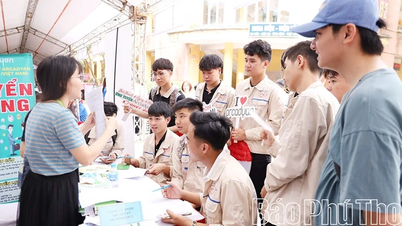

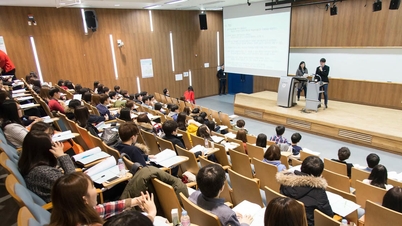



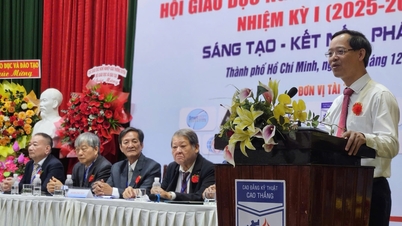

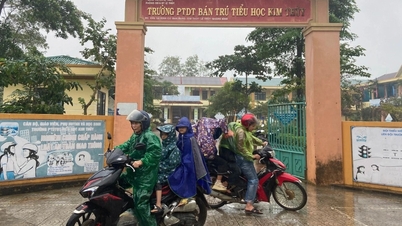

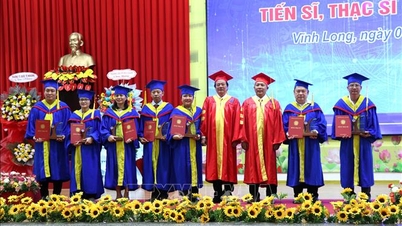


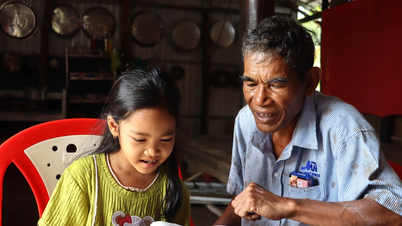
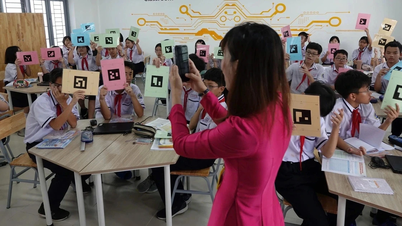




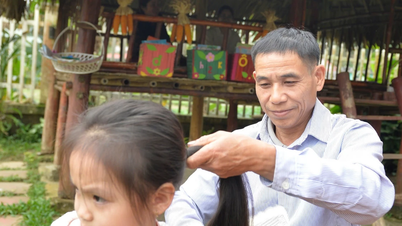
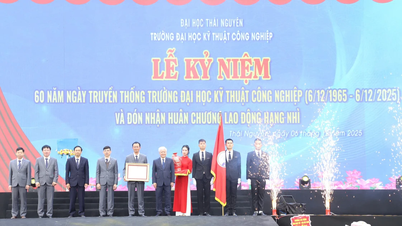
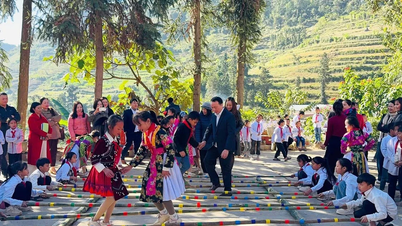
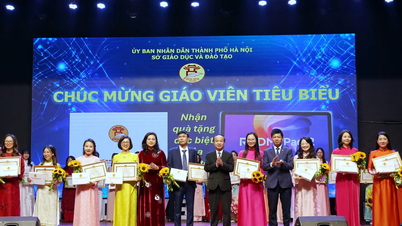
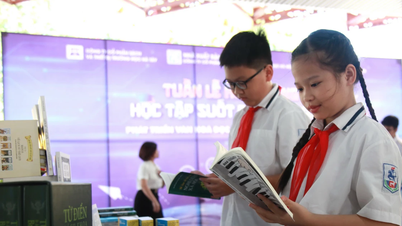
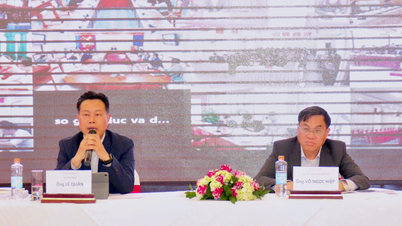









































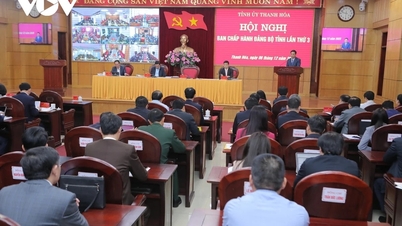





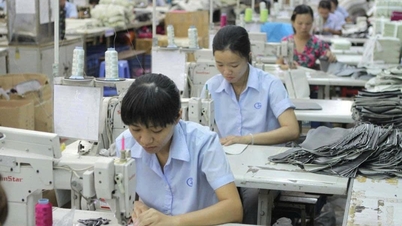
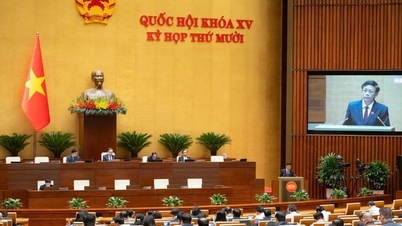
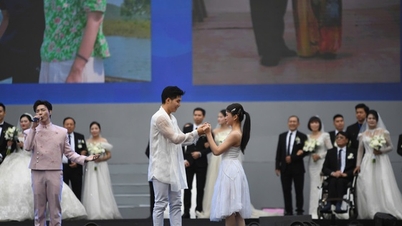
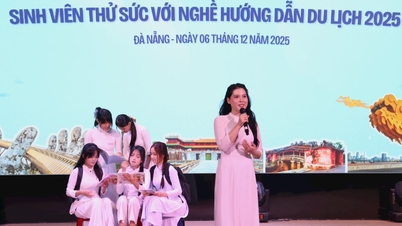


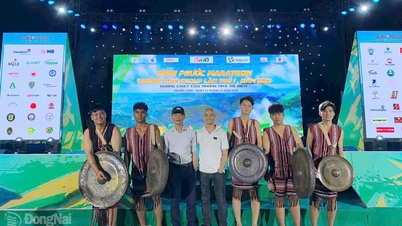
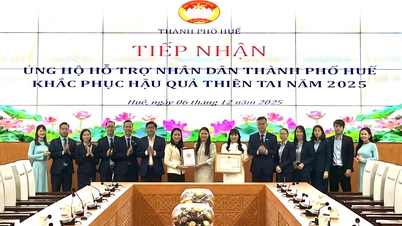





















Comment (0)